Contact
Oncology Service
Telephone
(530) 752-1393
Location
UC Davis Health Science District
VMTH
1 Garrod Drive
Davis, California
Oncology Service
Welcome to the Oncology Service at the UC Davis Veterinary Medical Teaching Hospital. Our cancer diagnostic and treatment services provide comprehensive care at one of the busiest veterinary cancer treatment centers in the world. The services we provide to dogs, cats and equine patients use both traditional and innovative approaches in treatment. The traditional approach includes chemotherapy, radiation therapy, radioactive iodine therapy and surgical intervention. Our innovative approach includes interventional radiology, immunotherapy, stereotactic radiosurgery, intensity modulated radiotherapy and computerized treatment planning, as well as other unique treatments that may be developed through our oncology clinical trials.
Our clinical team consists of more than 20 faculty and staff members, including multiple full-time, board certified veterinarians in Medical and Radiation Oncology, Surgical Oncology, Radiology, and Pathology. In addition, our state-of-the-art imaging services include CT, MRI, ultrasound, nuclear medicine and PET scanning. Scientific research also contributes to our excellence in cancer treatment. Our oncology team performs basic science and clinical research that include clinical trials designed to benefit our patients by discovering new ways to treat and diagnosis cancer.
We collaborate extensively with fellow clinical researchers at UC Davis Health's Comprehensive Cancer Center (CCC). As many human cancers share extremely similar traits to animal cancers, the Comparative Oncology Program with CCC allows researchers to develop safer and more effective treatments that lead to new advancements in treatment for both veterinary and human patients.
Our oncology program is unique. Not only are we part of one of the largest veterinary teaching hospitals in the world, we are part of one of the nation's premier research universities. This combination allows us to bring the newest advances to our patients. If your pet has a complicated problem or a health crisis, we are able to provide the most comprehensive range of specialties available at one location. You can count on us to make available all the specialists of the hospital. We work very closely with other departments including clinical pathology, dentistry, dermatology, emergency/critical care, histopathology, internal medicine, neurology, ophthalmology, radiology and surgery. Emergency care and critical care services are available 24 hours a day, 365 days a year.
Combining Compassion and Knowledge in Achieving Veterinary Excellence
Clinical Activities and Procedures
Cancer can be treated in many different ways. At the VMTH, we work closely with every individual client to discuss and determine a treatment plan that is the best course of action for the animal, but also works with the client's lifestyle.
Traditional treatments include:
- Chemotherapy
- Radiation therapy
- Surgical intervention
Innovative treatments include:
- Interventional radiology
- Immunotherapy
- Stereotactic radiosurgery
- Intensity modulated radiotherapy
- Computerized treatment planning
Frequently Asked Questions
- What is cancer?
- Cancer is a mass of abnormal cells with uncontrolled growth. Tumors are either benign or malignant. Benign tumors usually grow very slowly and generally do not spread. Veterinarians can remove most of them. Malignant tumors initially grow in the organ where the cancer started (termed localized disease). As they grow, they are more likely to spread or metastasize into the lymph nodes or other organs such as the lungs, liver and spleen. The more advanced the cancer (the more the cancer has spread) the more difficult it is to control and cure.
We usually cannot tell if a tumor is cancer until a biopsy test is done. A tiny piece of tissue is removed with a needle or by surgery. A special doctor called a pathologist studies the tissue under a microscope to see if it is cancer. Often, more tests are done on the tissue if it is cancer. These tests let the doctor know more about the cancer. This information guides treatment. - What are the different types of cancer?
There are hundreds of different types of cancer. They are identified by the type of body tissue involved or by the body part involved.
The major classifications of cancer are:Carcinoma: a malignant tumor found in the outermost covering or lining of body surfaces or organs. These tumors are found on the skin, in the mouth and throat, stomach and bowel, or in organs like the mammary gland, liver, lung or bladder.
Sarcoma: malignant tumor found in the structural tissues of the body such as bone, muscle and cartilage.
Round Cell tumors: malignant tumors often made up of different immune cells. Mast cell tumors and lymphoma are examples of this type of tumor.
- How is cancer treated?
Cancer is usually treated by surgery, radiation therapy or chemotherapy. Sometimes cancer specialists combine these treatments to provide the best patient care.
Surgery: the tumor and some surrounding areas of normal tissue are removed during an operation.
Radiation therapy: x-rays, gamma rays and other sources of radiation destroy the cancer cells in the area treated. All treatments are given under anesthesia to ensure immobilization and accurate positioning. When the goal of treatment is to cure the patient, radiation therapy is given as a series of doses given 5 days a week over a three to four week period. When there is no hope for cure, radiation therapy is given one to three times a week over three to four weeks to control pain and slow tumor growth.
Chemotherapy: medicine that is taken by mouth or injected into a patient's vein or under their skin. It travels through the body and works to destroy or stop the growth of cancer cells wherever they are within the body. Chemotherapy is given as a series of treatments. The particular drug used and the length of course of treatment depends on the type of cancer. Some chemotherapy also makes tumors sensitive to radiation.
All clients should talk with their veterinarian about the treatment options available for their pets. You should talk to your veterinarian about the goal of the treatment. Is it for cure? Is it for palliation (relief of symptoms caused by the cancer)? Treatment also might be adjuvant (to prevent or reduce the risk of cancer returning).- What are the side effects of chemotherapy?
- The goals of chemotherapy in veterinary medicine are different from those of human medicine, with a focus on maintaining quality of life during cancer treatment. Because of this conservative approach, the majority of canine and feline patients do not experience significant side effects. About 15% of patients may develop side effects such as vomiting, diarrhea, or fever. We may also cause suppression of the bone marrow, but this is monitored carefully and does not usually cause symptoms. Some dogs with a particular type of hair coat (such as poodles) can experience hair loss. Cats often lose their whiskers and undercoat with certain chemotherapy drugs. This is not a complete list of possible side effects. We will discuss with you the side effects seen with the particular drugs given to your pet at the time of your appointment.
- What are the side effects of radiation therapy?
- Effects from radiation therapy are broken down into acute (during or shortly after finishing treatment) and late effects (long term or happening months to years after treatment). The side effects are generally limited to the area treated and depend on what tissues are in the radiation beam. The skin often will get a radiation reaction, which can take as long as a month to heal. Because the symptoms vary with the anatomic site that is treated, we will discuss other side effects that may be particular to your pet when you come in for your appointment.
- If my pet receives radiation therapy is it radioactive?
- If your pet receives external beam radiation therapy, your pet is not radioactive after treatment, and no special precautions are necessary to protect you from radiation.
- What is meant by staging?
- Tumors also are "staged" to indicate the extent of the tumor locally and throughout the body. The oncologist stages a tumor based on the pathology report and other diagnostic tests. Some of these tests may be performed the same day as your appointment, some may have to be scheduled for a future date. Patients with the same stage and type of cancer have similar treatment. In general, the higher the stage of cancer the more difficult it is to treat.
- What can I expect when I come to the VMTH for an appointment?
- Most times you will first see a student who will take a medical history and then perform a physical exam. The student will then discuss your pet's case with one of the doctors on the Oncology Service. The clinician will then come in, ask additional questions and perform a physical examination. He or she will then discuss diagnostic and treatment options appropriate for your pet. This is a teaching hospital, and one of our primary missions is teaching. This means that often appointments are longer than they would be at your local veterinarian. We also try to do some of the procedures or staging the same day as your first appointment. This means that your appointment may take a good part of the day.
- What should I bring with me to my appointment?
- It is important that we have access to all the medical information about your pet. Please bring copies of records from your veterinarian. While faxed copies are acceptable, they are often difficult to read. Also please bring copies of any biopsy reports, blood work or any radiographs (x-rays) that your local veterinarian took.
- What are the costs associated with the diagnosis and treatment of cancer?
- The costs associated with the diagnosis and treatment of cancer are hard to estimate before evaluating a patient and will depend on the tumor type and the extent of disease. This will dictate what types of treatments will be necessary. We will discuss the costs of major diagnostic procedures and therapies with you during your appointment.
- Do you have any clinical trials?
- We are usually running several clinical trials at any one time. Some of these may have partial funding. Whether your animal qualifies for a clinical trial may depend on several things, including the type of tumor, how far the tumor has spread and the health of your pet, among other things. Explore the latest oncology clinical trials
- Can I call the hospital and speak with a doctor before I have an initial appointment?
- Since it is not possible to diagnose and treat cancer without fully evaluating a patient, we limit telephone consultations to referring veterinarians. Of course, once we have seen a patient, we will be available to discuss the case fully.
Faculty
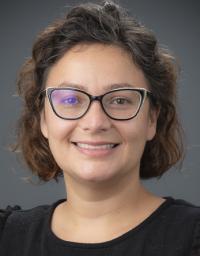
Amandine Lejeune, DVM, DACVIM (Oncology)
Associate Professor
Chief of Service (Medical Oncology)
Co-Director - House Officer Affairs Board

Michael Kent, DVM, MAS, DACVIM (Oncology), DACVR (Radiation Oncology), DECVDI (Radiation Oncology add on)
Professor
Chief of Service (Radiation Oncology)
Director - Center for Companion Animal Health
Co-Program Leader - Comparative Oncology Program
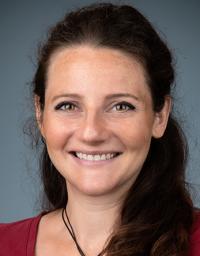
Rachel Brady, DVM, PhD, DACVIM (Oncology)
Assistant Professor (Medical Oncology)

Jessica Lawrence, DVM, DACVIM (Oncology), DACVR (Radiation Oncology), DECVDI (Radiation Oncology add on)
Professor (Radiation Oncology)
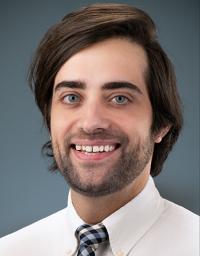
Sami Al-Nadaf, DVM, DACVIM (Oncology)
Assistant Professor (Medical Oncology)

Rob Rebhun, DVM, PhD, DACVIM (Oncology)
Professor (Medical Oncology)

Matthias Rosseel, DVM, DACVR (Radiation Oncology)
Assistant Professor (Radiation Oncology)

Katherine Skorupski, DVM, DACVIM (Oncology)
Professor (Medical Oncology)
House Officers
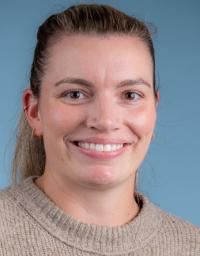
Jenna Acutt, DVM
Resident I (Radiation Oncology)
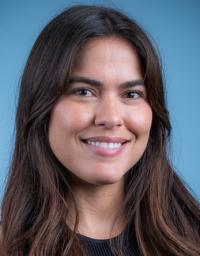
Gabriella Gomez-Inglesias, DVM
Oncology Clinical Trials Intern

Lior Granot, DVM
Resident II (Radiation Oncology)

Rachel Hanford, DVM
Resident II (Medical Oncology)

Kelsie Kermendy, DVM
Resident III (Medical Oncology)

Jaeyoung Kim, DVM
Resident III (Medical Oncology)

Alvina So, DVM, MBS
Resident I (Medical Oncology)

Anett Szczepanek, DVM
Resident II (Medical Oncology)

Bryce Westbrook, DVM
Resident I (Medical Oncology)
Staff

Kriste Sears
Oncology Service Staff Supervisor
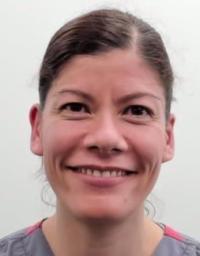
Flora Nelson, RVT
Medical Oncology Service Staff Lead

Gabby Hovey, RVT
Radiation Oncology Service Staff Lead
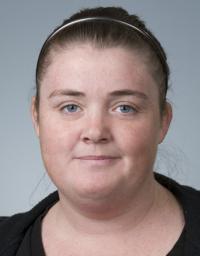
Jenny Dutton
Oncology Service Coordinator

Andrea Engwis
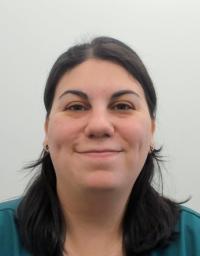
Katja Guevara, RVT

Lindsay Haren, RVT
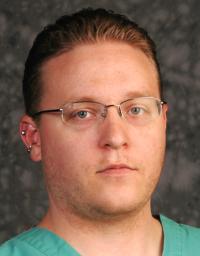
Dakin Oliver

